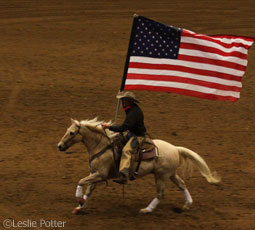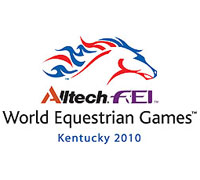
Edited Press Release
The Horses and Humans Research Foundation awarded its seventh $50,000 research grant recently to a team from the Research Center for Human-Animal Interaction, University of Missouri, College of Veterinary Medicine. The team will examine the effects of 6 weeks of therapeutic horseback riding on 40 U.S. military veterans with Post Traumatic Stress Disorder and/or Traumatic Brain Injury. Specifically, the multi-disciplinary investigative team will systematically evaluate whether the horseback riding intervention impacts participants’ experience of PTSD symptoms, including coping skills, emotional regulation and social engagement. The study, “Effects of Equine-Assisted Activities on PTSD Symptoms, Coping Self-Efficacy, Emotion Regulation, and Social Engagement in Military Veterans,” is community-based and takes an innovative approach to treating the symptoms of PTSD/TBI which as many as one in five Iraq and Afghanistan veterans experience.
“U.S. military veterans have made great sacrifices for their country,” said Principal Investigator Rebecca A. Johnson, PhD, RN, FAAN, Professor and Director, Research Center for Human-Animal Interaction, University of Missouri, College of Veterinary Medicine. “After combat deployment, very large numbers of them experience Post Traumatic Stress Disorder and Traumatic Brain Injury. These conditions make it extremely difficult for the veterans to readjust to civilian life. Research so far is promising that therapeutic horseback riding can help people with such physical, emotional, and cognitive challenges. But no studies of veterans have been done.”
Participants will be randomly assigned to one of two study groups, an experimental group and a control group. The experimental or Riding Group will spend one hour per week interacting with and riding the same horse at one of three PATH-accredited riding centers in Mid-Missouri under the supervision of an Occupational Therapist. Riding will follow a systematic lesson plan and be directed by a PATH-certified instructor, a leader and side walkers as necessary. Participants will be evaluated when they enter the study, after 3 weeks of riding, and again after 6 weeks of riding. Veterans in the Control Group will be assessed when they enter the study, and 3 and 6 weeks later while they wait to switch to the Riding Group.
“We are so pleased to award a research grant to Rebecca Johnson and her team at the University of Missouri so they can investigate how horses might help veterans in a therapeutic setting,” said Lynn Shaw, HHRF Board President. “With PTSD and TBI being the most prevalent injuries we see in returning military personnel, this research is exceptionally timely and important. We are extremely appreciative of the visionary donors who made this grant possible.”
This special research fund began with a seed contribution from the Caisson Platoon Equine Assisted Program, which serves the Walter Reed Army Medical Center and the National Naval Medical Center. It is the first of a series of specially focused research initiatives planned by HHRF for the coming years, a departure from the more general research funding that has been available since the organization was founded in 2004.
Horses and Humans Research Foundation is the only organization dedicated solely to funding research to support the equine-assisted activities and therapies field. To make a donation and/or learn more about this and other Horses and Humans Research Foundation projects please visit www.horsesandhumans.org.





Thats a lot of money to be spent on finding out what “we’ (horse lovers/owners) all ready know….horses are great therapy.
Horses are the best therapy too bad not all can understand it
they are giving HOW MUCH money for some simple question I could answer in my sleep?!?!!? LEGIT? come on peeps!
Yes.
Most definitely. As a TBI patient, I experienced the necessary sameness, and friendly comfort and consideration provided by the horse. Somehow, the horse is quite aware and accepting of the fact that he/she is on God’s earth to serve man in whatever category required of him/her. Any obstinance or playfulness seems to be put aside when the human rider needs the extra care. I have observed this as a TBI patient, a therapeutic riding instructor, and a speech pathologist. Especially meaningful is the fact that the horse who helped mr in my recovery was one who had greatfully challenged me previously. Perhaps they sense when to challenge us to improve our condition, and thus help ourselves.
We all seem to agree, tooooooo much money for something we could all answer the question. But serious, I hope it helps. Think of all the horses that will be helped in return.
At 17 I suffered a open skull fracture. Capable TBI Still have some drop on left foot. Then at 37 my husband found my husband after a self inflected gsw to the head. Wow this sounds awful its not… I have a good life… I sold my house move to the country . 27 miles from FT Carson to be exact. And bought 4 horses. BEST Tx EVER ! seriously there is something bout the connection between horse and man that is good for the soul. These men and we on need this. I would love to share mine if there is a way to help. Contact through email please.